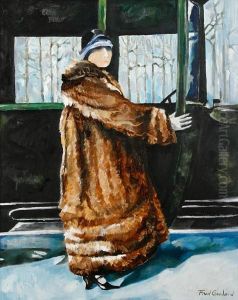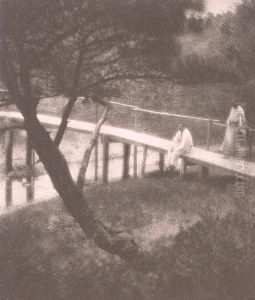Fred Holland Day Paintings
Fred Holland Day was an American photographer and publisher who played a significant role in the Pictorialist movement of the late 19th and early 20th centuries. Born on July 23, 1864, in Norwood, Massachusetts, Day was the son of a wealthy merchant and was able to devote his life to art and literature without the need for a profession.
Day's interest in photography began in the 1880s, and he quickly became a central figure in the art photography movement in America, advocating for photography to be recognized as a legitimate form of fine art. In pursuit of this goal, he co-founded the publishing firm Copeland and Day in 1893, which produced literary and art publications, including works by Oscar Wilde and Aubrey Beardsley, contributing to the Aesthetic Movement.
As a photographer, Day was known for his carefully staged compositions and for using the photographic process to emulate the styles and themes of classical painting. His work often featured religious and allegorical subjects, and he is perhaps best known for his series of photographs depicting the crucifixion of Christ, in which he used himself as the model for Jesus. This series, 'The Seven Last Words of Christ,' was controversial for its explicit religious imagery and Day's use of himself as the subject.
Day was also a mentor and promoter of other photographers, and he was instrumental in organizing the first New England exhibition of pictorial photography in 1895. He was a founding member of the Photo-Secession, a group of photographers led by Alfred Stieglitz that aimed to advance photography as a fine art. However, Day's insistence on the handcrafted aspect of photography and his opposition to the growing trend of mass-produced photographic prints eventually put him at odds with Stieglitz and other members of the group.
In 1904, a fire destroyed much of Day's work, and this event, along with the deaths of his parents and declining health, led to a reduction in his photographic activity. By the 1920s, his work was largely forgotten, overshadowed by the modernist approaches that were coming to dominate photography.
Fred Holland Day died on November 12, 1933, in Norwood, Massachusetts. His legacy as a pioneer of Pictorialism and an advocate for photography as an art form was reassessed and celebrated posthumously, with exhibitions and publications bringing renewed attention to his life and work.

